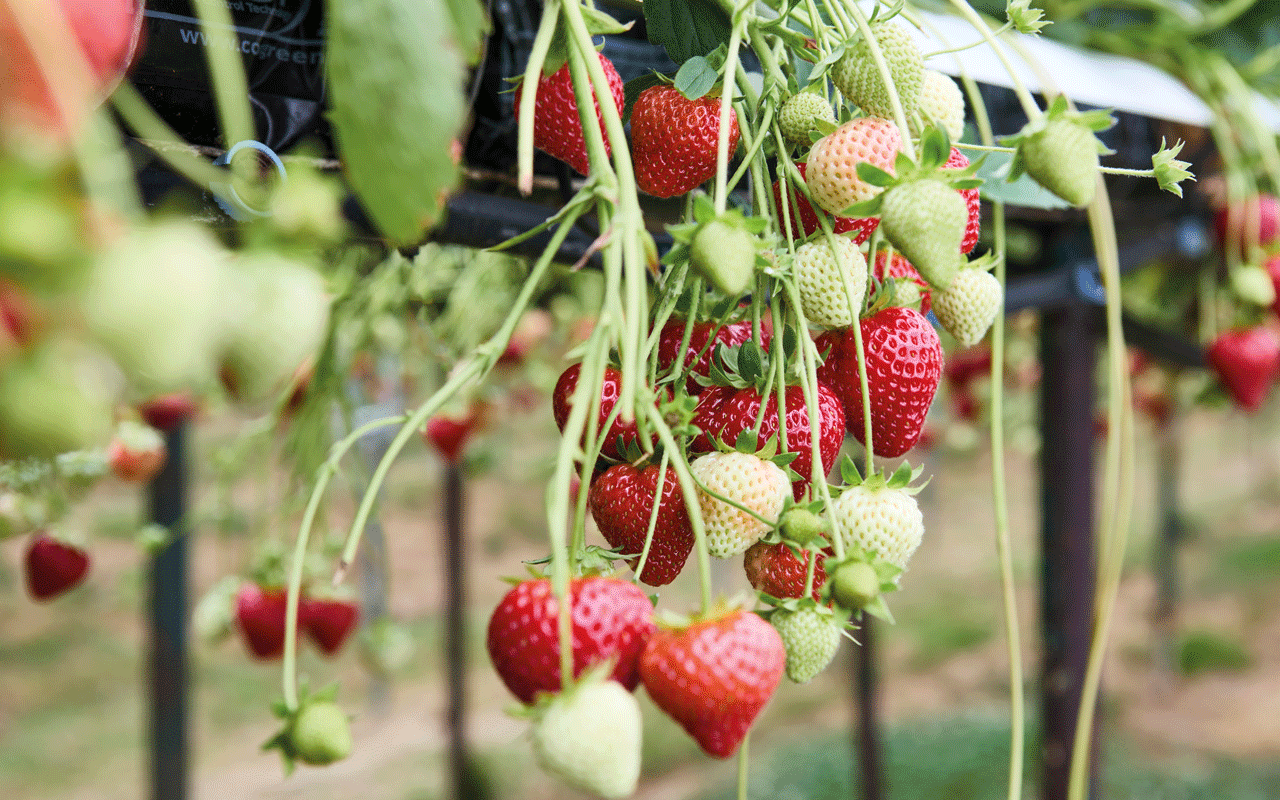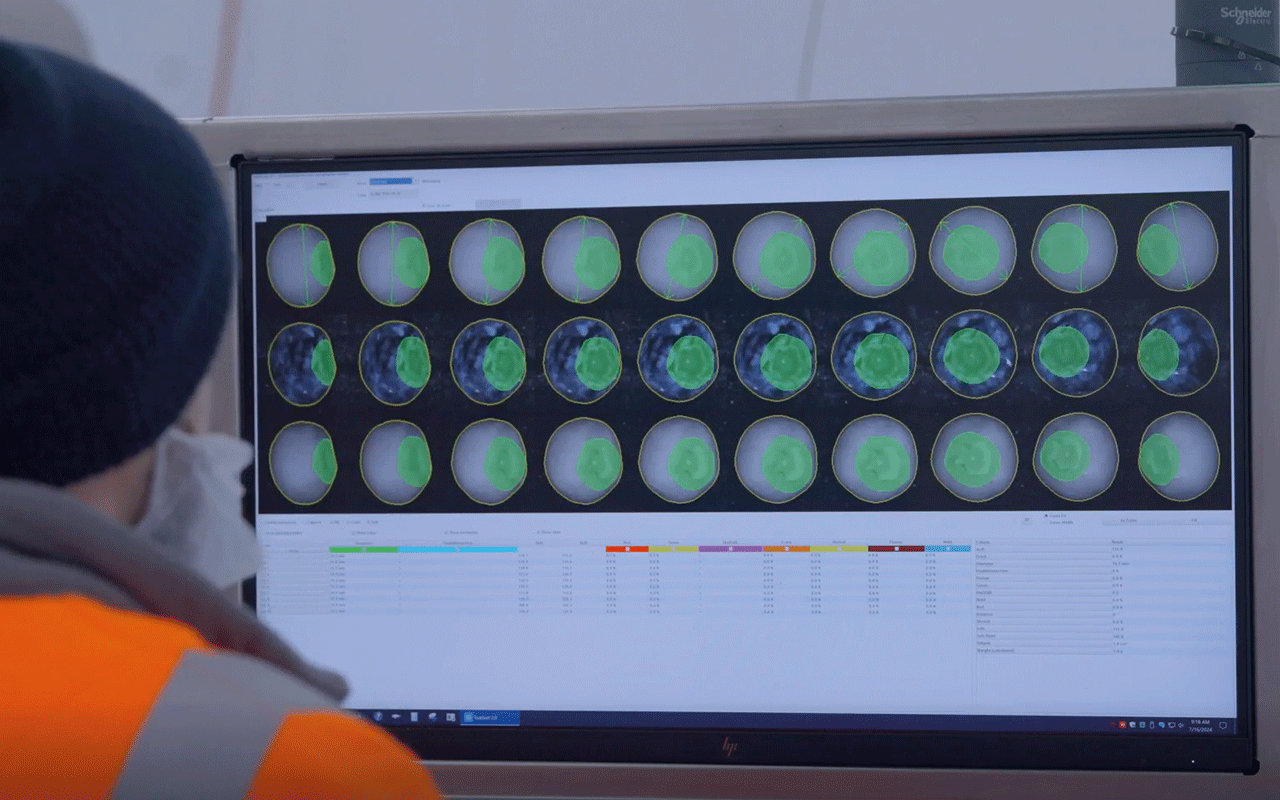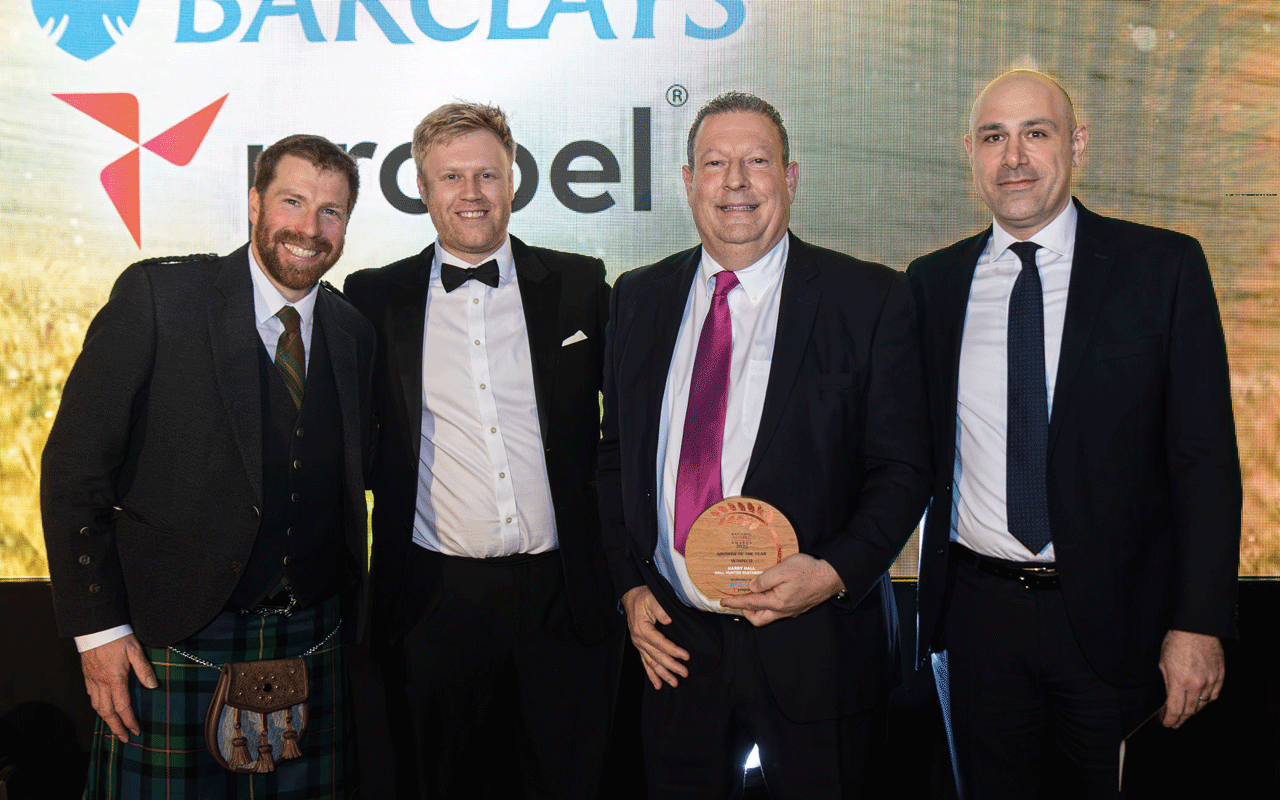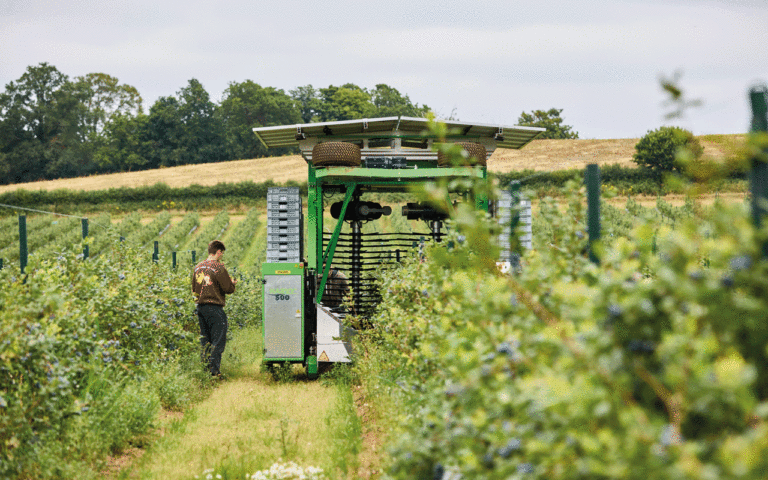From selling vegetables to London markets in the 1960s, Hall Hunter has expanded to five farms across Berkshire and Surrey, totalling 400ha and producing soft berries for most of the major UK retailers.
Managing director Jim Floor says the soft fruit market has increased significantly in the past decade, with customers that are looking for more locally sourced produce from the UK.
The company’s most recent development has been expanding the blueberry area by 55ha to 200ha. “We’ve seen 25% growth in our blueberry sales year on year,” Jim explains. “People are looking at the crop as one of the most popular superfoods.”
In excess of 2,000t of blueberries are produced each year, sold alongside 6,000t of strawberries, 1,000t of raspberries and 100t of blackberries. Heated tunnels are used to extend the strawberry season, with 35% of the crop grown under cover.
This means British-grown strawberries can be picked from the start of April all the way through to December.
Jim notes that this fits within the company’s wider aims. “We’re a commercial enterprise.”
Hall Hunter is operated on the assumption that there will be no subsidies or grant schemes. This has led to significant investment, not only in the day-to-day running of the business, but also in new technologies that Jim hopes will boost efficiency and take away some of the risk of growing a crop.
This starts with variety choice. The company runs a 0.5ha trial site, with
the latest varieties being tested and the core products swapped out once a new one is proven.
“It’s about uniformity,” he says. “One trait excelling while the crop suffers from disease isn’t a benefit to us. We’re looking for varieties that can deliver a consistent shape, size and flavour, as well as good resistance to pests and diseases so that every punnet can go straight on the shelf.”

Integrated pest management
Huge efforts have been made to limit the number of chemical controls used on the berries. This starts with adjusted spacing, as well as canopy and climate management to keep disease outbreaks isolated.
Some of the recent investments include ultraviolet treatment from Saga Robotics for a large proportion of the strawberry crop, with a view to expand this in the future to 100%.
“There are multiple benefits to this,” says Jim. “It cuts our chemical use by up to 60%. For the customers, this non-invasive, non-chemical solution is in line with what consumers are looking for from their produce.”
In the case of pests, biological controls are used where possible, with wildflower margins planted on field edges to attract beneficial insects. Where pesticides are used, strict intervals are maintained to ensure no residues are present.
Hall Hunter’s approach to water security also plays a role in its pest control. The margins and buffer strips help to minimise erosion. They also boost biodiversity, along with beetle banks that provide habitats for other predatory beneficials.
“Water security is absolutely key for us,” Jim adds. “We have eight reservoirs across the three farms. We’ve also installed a network of boreholes, which provides water year round.”
An innovative investment from the company was the introduction of 16.3MW-capacity water source heat pumps, which use water from the reservoirs to generate heat for the strawberry polytunnels.
As mentioned, this extends the growing season for the primary crop on the farm, while also minimising the cost of climate control for the fruit.
Efforts towards sustainability has paid off as well. Last year, Hall Hunter received B Corp certification, which assesses the sustainability credentials in governance, workers, customers, community and the environment.
“B Corp audit every part of the business before awarding certification,” Jim says. “It’s really an excellent process that makes you look at every process to ensure it matches the values the business promotes.”

Future-proofing
Jim says technology will play a key role in the business in future, and the company is already working with start-ups to integrate new systems on the site.
Working with Netherlands-based company Eliefab, Hall Hunter has installed a blueberry grading system that uses artificial intelligence to sort by size, colour and any recognisable defects.
Hall Hunter also operates the only autonomous blueberry harvester in the UK. Developed in the Netherlands by Fine Field, the Harvy 500 has an output of 500kg/hour and is powered by integrated solar panels.
Both pieces of blueberry technology have the potential to replace 50 people from the packhouse and the field, respectively.
“It isn’t about replacing people,” Jim is quick to point out. “We have more than 200 full-time staff and we bring in about 1,200 seasonal workers, who are housed and looked after on site. However, it is getting more difficult to source labour, and we need to be aware of the efficiency gains this technology can provide.”
Automation can be seen throughout the business, with Runner Robots from Fox Robotics being trialled to reduce the time spent walking fruit back to the end of the row, and a raspberry-picking robot is being developed alongside Fieldwork.
Much of the packhouse has also been upgraded, with a punnet e-weighing system, technology to monitor fruit firmness and an automated system that determines potential shelf life to help reduce waste.
“One of the challenges both growers and technology companies face is getting these machines to work in real-world conditions,” he says. “If farming businesses aren’t willing to get involved from the ground up, we won’t get the technology that really benefits us.”
Hall Hunter has also worked with Lincoln University on several projects, including Fruitcast, a technology that counts berries. “We can’t work in a bubble,” Jim says, when discussing the benefits of these collaborative efforts.
“The results of trials; the implications of new technology; it all has the potential to help growers across the UK and beyond. Working together can help to strengthen the whole sector.”

A people business
While much of the investment has been focused on automation, Jim doesn’t imagine the business without its staff. Significant investments have been made in the accommodation for workers and packhouse staff, with Jim noting that 65% choose to return year after year.
Hall Hunter has also developed various training schemes, with apprenticeships, graduate schemes and subsidised qualifications available to members of staff. The opportunities for growth within the business has seen many pickers work their way up to permanent managerial or agronomic roles.
“When I came on board as managing director, I was pleased to see that there was a large proportion of the full-time staff who had been here more than 20 years, with some of the most senior members having started as pickers,”
Jim says.
Finding common ground
He concludes by acknowledging that Hall Hunter possibly stands out as the winner of Grower of the Year.
There are clear differences between the soft fruit sector and the arable and grassland sectors, and Hall Hunter is working on a different scale to many broadacre cropping businesses.
However, Jim says the business faces many of the same challenges, and he believes there are examples to be taken.
“Our business is just as much about risk and reward,” he says. “Blueberry plants take between three and five years to mature, so we invest and do what we can to ensure the plant provides a return in the future.
“The key thing for our business is that we never stand still. Too many people, both in agriculture and outside of it, do the same things over and over because it’s what they have always done. We need to look outside of that and create opportunities that will future-proof our sector.”


